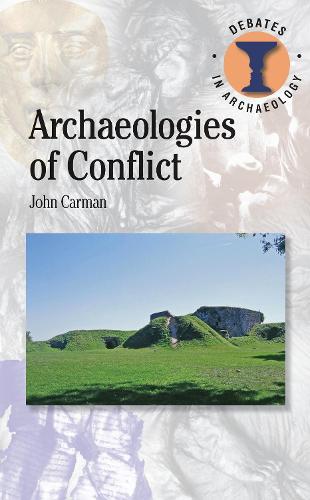
Archaeologies of Conflict
(Paperback)
Available Formats
Publishing Details
Archaeologies of Conflict
By (Author) John Carman
Bloomsbury Publishing PLC
Bloomsbury Academic
28th August 2014
United Kingdom
Classifications
Tertiary Education
Non Fiction
930.1
Physical Properties
Paperback
152
Width 137mm, Height 211mm, Spine 10mm
300g
Description
The development of key methodologies for the study of battlefields in the USA in the 1980s inspired a generation of British and European archaeologists to turn their attention to sites in their own countries. The end of the Cold War and key anniversaries of the World Wars inspired others, especially in the UK, to examine the material legacy of those conflicts before they disappeared. By 2000 the study of war was again firmly on the archaeological agenda. The overall purpose of the book is to encourage proponents and practitioners of Conflict Archaeology to consider what it is for and how to develop it in the future.The central argument is that, at present , Conflict Archaeology is effectively divided into closed communities who do not interact to any large extent. These separate communities are divided by period and by nationality, so that a truly international Conflict Archaeology has yet to emerge. These divisions prevent the exchange of information and ideas across boundaries and thereby limit the scope of the field. This book discusses these issues in detail, clearly outlining how they affect the development of Conflict Archaeology as a coherent branch of archaeology.
Author Bio
John Carman is Senior Lecturer in Heritage Value, Institute of Archaeology and Antiquity, University of Birmingham, UK, Co-Director of the Bloody Meadows Project, and convenor of ESTOC: European Studies of Terrains of Conflict. He is the author of Against Cultural Property: Archaeology, Heritage and Ownership in this series.
